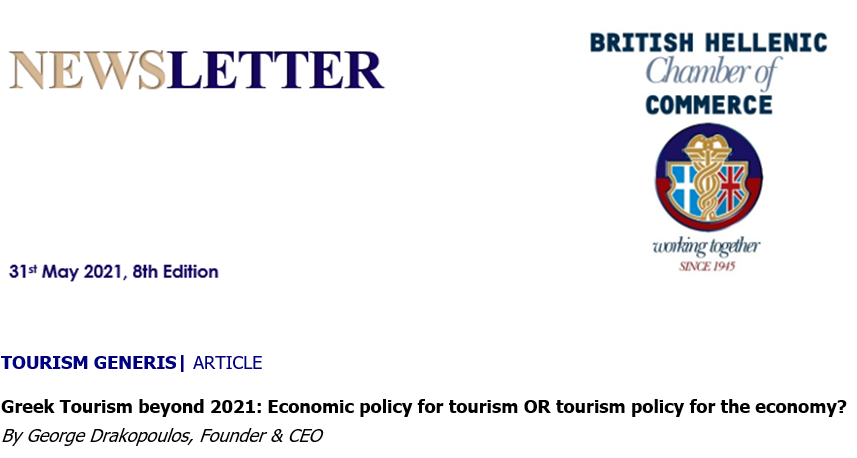
(Published in the British Hellenic Chamber of Commerce Newsletter: 31.05.2021)
The COVID-19 pandemic confirmed once more – in a bad way, though - the importance of tourism for the development of the Greek economy and society. The dramatic drop in arrivals, overnight stays, receipts and employment (more than 75% compared to 2019) gave floor to some “tourism skeptics” to question the role of tourism.
Recovery scenarios assume different “speeds” and the public dialogue is dominated by the debate whether tourism will return to normal or travelling will never be the same again. It is, more or less, widely accepted, that the future of tourism depends on how deep the economic impact of the pandemic is and how travellers will behave. If we are happy with this approach, we are then, mostly observers than active stakeholders. We need to be active in redefining the new normality instead of just being willing to adapt to it. We need to decide between a simple restart and a brand-new beginning. We need to be active; we need to innovate and co-create instead of simply asking for “extra care and pampering for Tourism”.
On planning level, the pandemic is already past and serious issues, such as sustainability, climate change and digitalisation lie ahead. We already know how short the innovation cycles are in Tourism and, we mostly need new governance models, mainly on the public sector area. Along with economic labour and environmental policy for tourism, we need tourism policy for the economy, the employment and the environment. As a sector, we need to cover a serious strategic planning gap caused by the pandemic, we need to think different, we need to innovate. To put this in perspective, let’s ask ourselves: While the first man walked on the moon in 1969, when have we used, for the first time, a wheel-suitcase for our travels?

